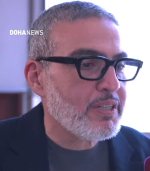
Letters penned during the Seven Years' War in 1757-1758, meant for French sailors on board the Galatee but confiscated by Britain's Royal Navy, have been opened for the first time, shedding
light on universal human experiences.
Prof Renaud Morieux, a University of Cambridge academic, discovered this collection of 104 letters in the National Archives in Kew, underscoring the agonizing near-success of their delivery to the intended recipients onboard the Galatee.
The Galatee was en route from Bordeaux to Quebec when it was captured by the British in 1758. The French postal administration had attempted delivery in various ports in France but to no avail. Consequently, the letters were forwarded to England, where they ended up in navy storage.
British Admiralty officials deemed these letters militarily insignificant, and they remained unopened for centuries. Prof Morieux was the first person to read these deeply personal messages, offering a poignant glimpse into the lives and emotions of the past.
The letters were addressed to a quarter of the Galatee's 181-strong crew, and Prof Morieux conducted genealogical research into the men and their correspondents. These letters illuminate the human experience of separation, longing, and communication across vast distances.
For instance, a letter from Marie Dubosc to her husband, Louis Chambrelan, the ship's first lieutenant, reads, "I could spend the night writing to you... I am your forever faithful wife. Good night, my dear friend. It is midnight. I think it is time for me to rest." Tragically, Louis Chambrelan never received this letter, and they never met again, as Dubosc passed away the following year in northern France.
Jean Topsent, a non-commissioned officer, received a letter from his wife, Anne Le Cerf, in which she expressed her anticipation of reuniting with him. These letters offer a poignant reminder of how humanity copes with adversity and separation, a theme that remains relevant today.
The profound emotions and desires expressed in these letters transcend time, emphasizing the enduring and universal aspects of the human experience when faced with challenges and separation, whether due to wars, pandemics, or other uncontrollable events. Prof Morieux's findings highlight the shared thread of human connection across centuries, even in the face of adversity. Photo by Blaue Max, Wikimedia commons.









































